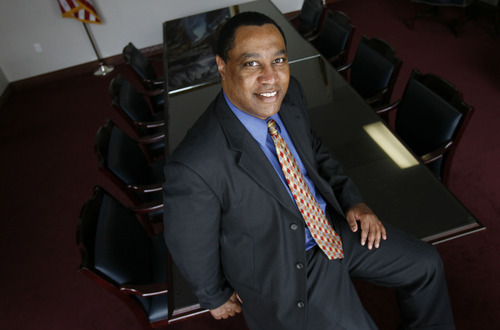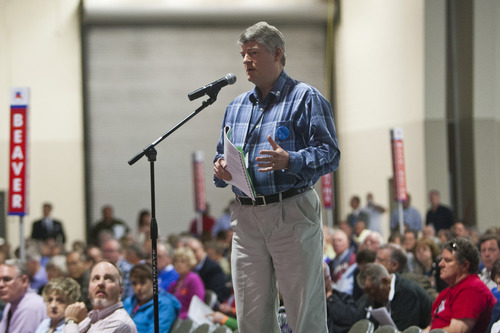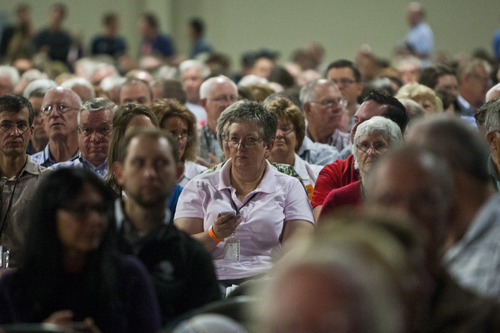This is an archived article that was published on sltrib.com in 2013, and information in the article may be outdated. It is provided only for personal research purposes and may not be reprinted.
Supporters of a ballot initiative to change how Utah picks its candidates for elected office are raising money — and doing so at a brisk pace — in anticipation of a formal launch in the coming weeks.
Rich McKeown, a spokesman for the Count My Vote group, said organizers held their first fundraiser earlier this month. "We're doing well there, in fact, very well," McKeown said. "People are interested in this and willing to come out and we're really gratified by the results."
McKeown wouldn't say how much had been raised by the group, which has 30 days to publicly disclose how much it brought in from the event.
He said Count My Vote is also conducting a poll to gauge public support for two potential changes to Utah's unique system of picking candidates.
One option would be to go to a system of direct primaries in which candidates vying for a party's nomination compete head-to-head on the primary ballot.
The other is a hybrid of sorts, preserving part of the current system in which candidates could compete for support from a group of delegates chosen at party caucuses for the endorsement from the party. But that party convention-picked candidate could still have to compete in a primary if an opposing candidate gathered enough signatures — 2 percent of the voters in the previous election has been discussed — to make it onto the ballot.
"We really are in the process of deciding which of the two proposals we'll move forward with," McKeown said.
He said the group expects within the next few weeks to have a "fairly aggressive schedule" of events and activities leading up to the formal filing of the initiative language.
The Count My Vote group is led by former governor and Cabinet secretary Mike Leavitt; McKeown; University of Utah political scientist Kirk Jowers; and others. It has expressed concern that the current system of letting a relatively small group of delegates pick nominees at a state convention results in candidates representing the fringes of both parties, leaving mainstream Utahns under-represented and driving down election turnout.
Once the group files the initiative, it must gather more than 100,000 signatures from around the state to put the measure on the 2014 ballot. If approved by voters, the change could take effect for the 2016 election.
The Utah Republican Party Central Committee voted for a resolution in June that calls for a My Vote Counts counter-initiative that affirms and defends the current caucus system.
"At the end of the day, the debate is about who gets to control who can use the party label," said Utah GOP Chairman James Evans. "I can tell you right now, in [an open] primary option, you will see many interests, like big labor, sponsoring candidates in the Republican primary, all sorts of things like that where there are just all sorts of unintended consequences."
Evans said it will boil down to whether candidates are publicly chosen by a group elected at neighborhood meetings or nameless, faceless special interests.
Democrats, meantime, have voted not to go to direct primaries and instead plan to appoint a task force to spend a year coming up with ways to improve the current caucus-convention system.
State Democratic Chairman Jim Dabakis said he objects to his party being swept up into what he says is an internal GOP civil war. If Republicans want to fix their system, he said, they should do it internally and leave Democrats out of it.
"This is a bunch of the old-time Republicans that have lost their power, and they are trying to get their power back within the Republican Party," Dabakis said. "It galls me that they are trying to sell this to Democrats as if this is somehow relevant to the Democratic Party."
Twitter: @RobertGehrke







